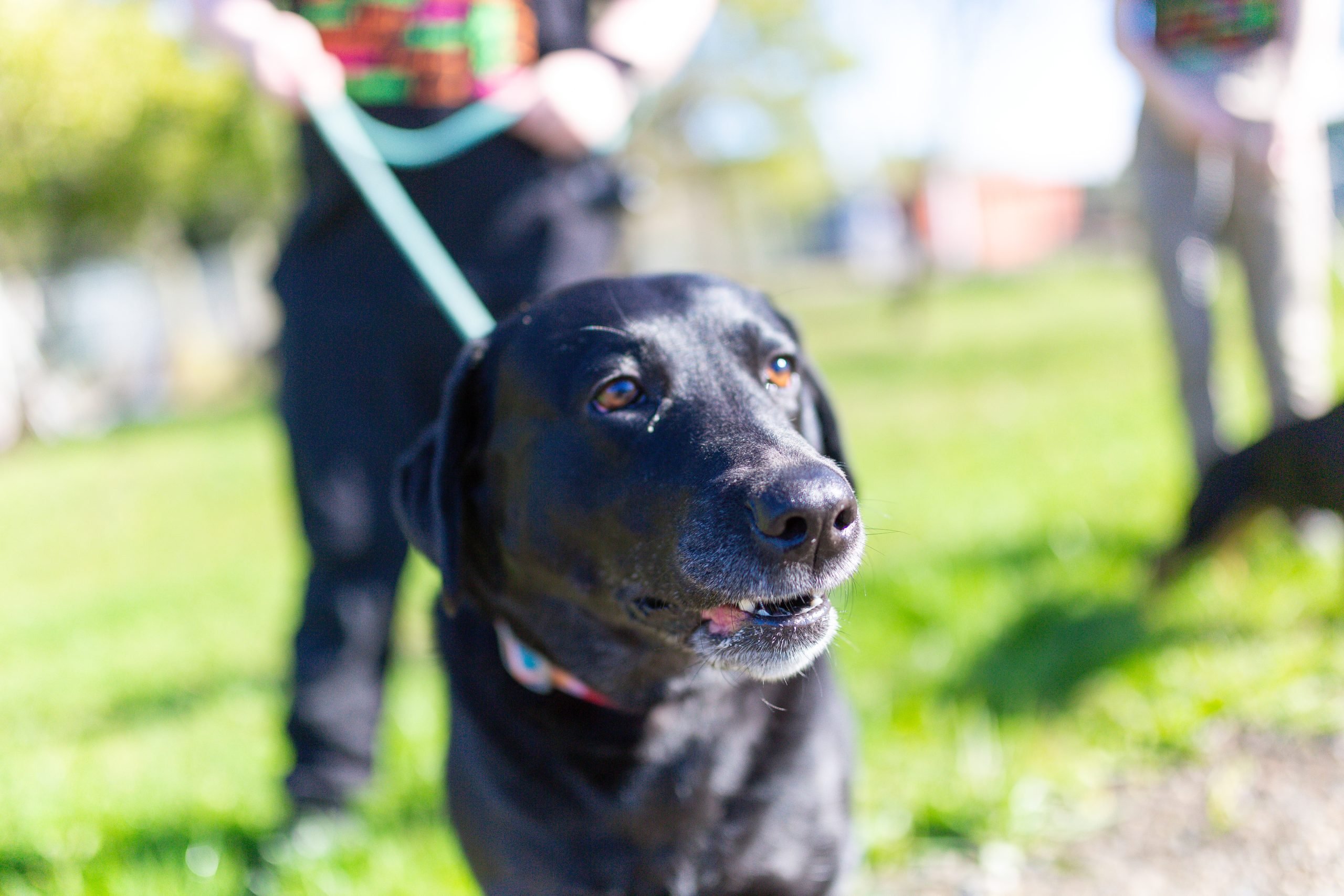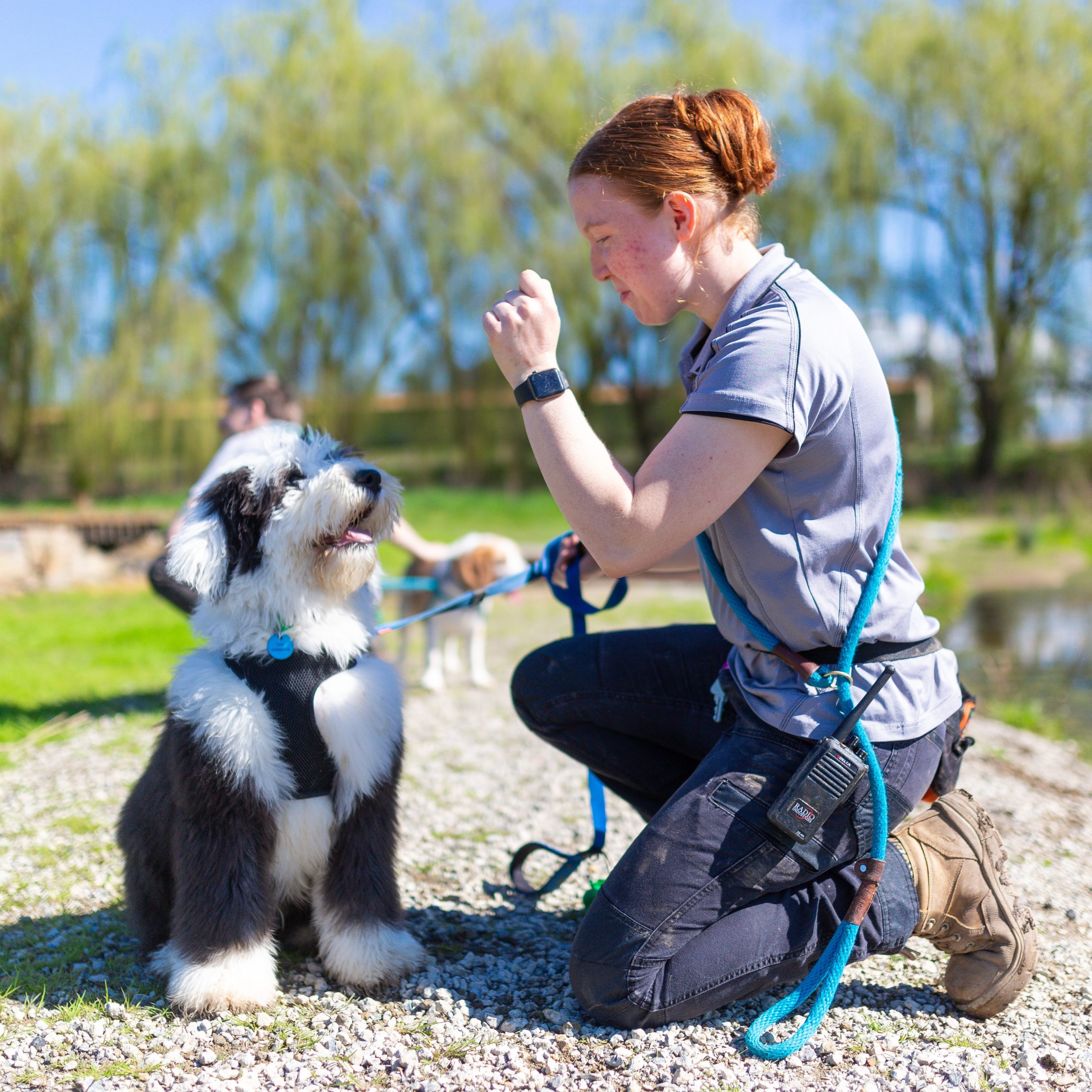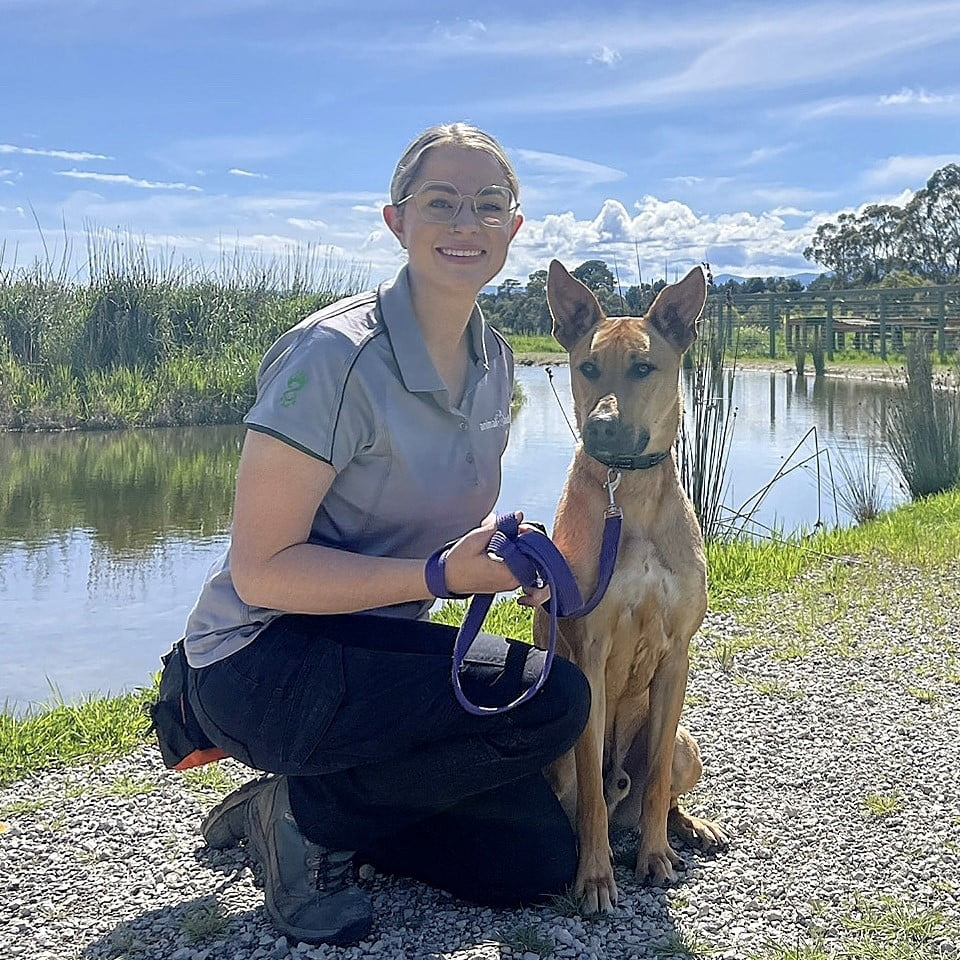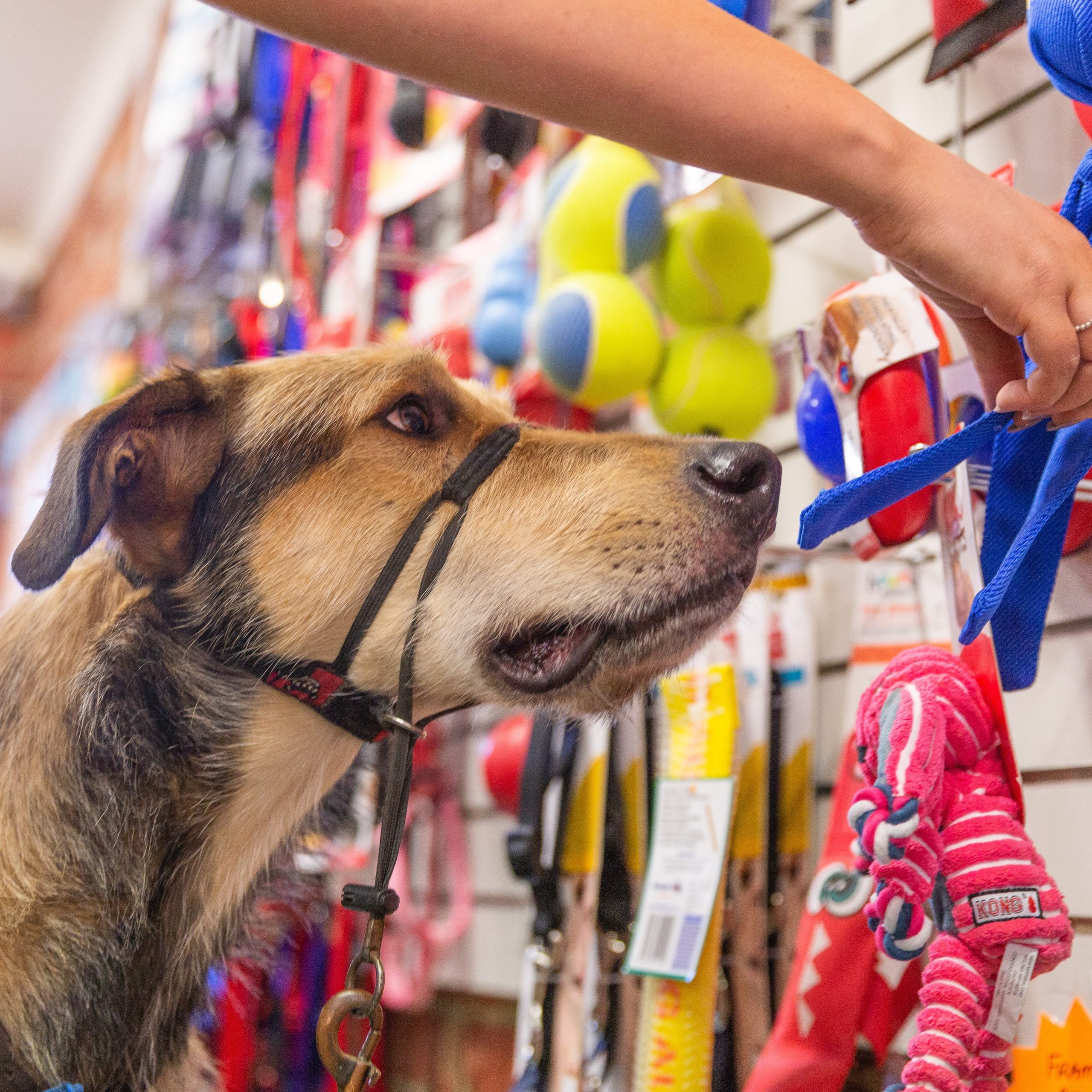
Enrichment is providing animals with environmental stimuli that satisfy their instincts, which promotes physical, psychological, and emotional well-being.
Our Animal Aid Dog Behaviourist Georgia is passionate about enrichment for dogs, noting that a dog’s emotional well-being is just as important as their physical health.
“When considering the natural behaviour of most canines, it is obvious that the average pet dog receives very low levels of environmental stimulation,” says Georgia.
“Most non-domestic animals spend the majority of their time foraging for food. Pet dogs on average spend less than 15 minutes per day eating because they do not have to forage for food. They are often kept in static and often monotonous environments and this can lead to poor welfare outcomes for these dogs.”
We know that the majority of dog breeds were developed for some functional purpose (guarding, herding, hunting, etc.) yet few dogs participate in these activities, leaving them with no outlet for often high levels of energy and stamina. In turn, we see lots of dogs come into our shelter for help with behavioural challenges.
Insufficient stimulation can cause or exacerbate several behaviour problems including hyperactivity, destructive chewing, excessive digging and/or barking, attention-seeking behaviours, compulsive disorders, and certain forms of aggression,” says Georgia.
“Environmental enrichment can encourage a more normal range of behaviours in the animal and serve to constructively occupy the animal’s time and aid in reducing “boredom.”
“I recommend that dogs receive their entire daily ration of food during training or from enrichment devices,” says Georgia, “All enrichment items should be rotated so the animal does not see the same items repeatedly every day. Particularly destructive dogs should only get certain toys while under direct supervision to avoid foreign body ingestion!”
Georgia’s top recommendations for enrichment ideas
- Scattering dry food on the back lawn at meal times
- Foraging devices such as Kong classic, Kong Wobbler, Kong Tiltz, and Kong Gyro for meals and treats
- Cardboard boxes set up in the backyard with food scattered underneath, inside, etc for “box search”
- Rotation of toys to help avoid boredom – keep some toys hidden away and rotate them once weekly
- Daily positive reinforcement training sessions
- Wading pool (in summer)
- Sand pit for digging and hiding toys and treats
- “Find it” games
- Allow all the sniffing in the world when on walks = excellent sensory enrichment!
- Aussie Dog Toys are a great company, especially for home-alone toys
- Licki-Mat for wet foods
- Fill a large ice block tray with broth and treats, then freeze (for summer)
- You! The best enrichment you can provide is your time!




